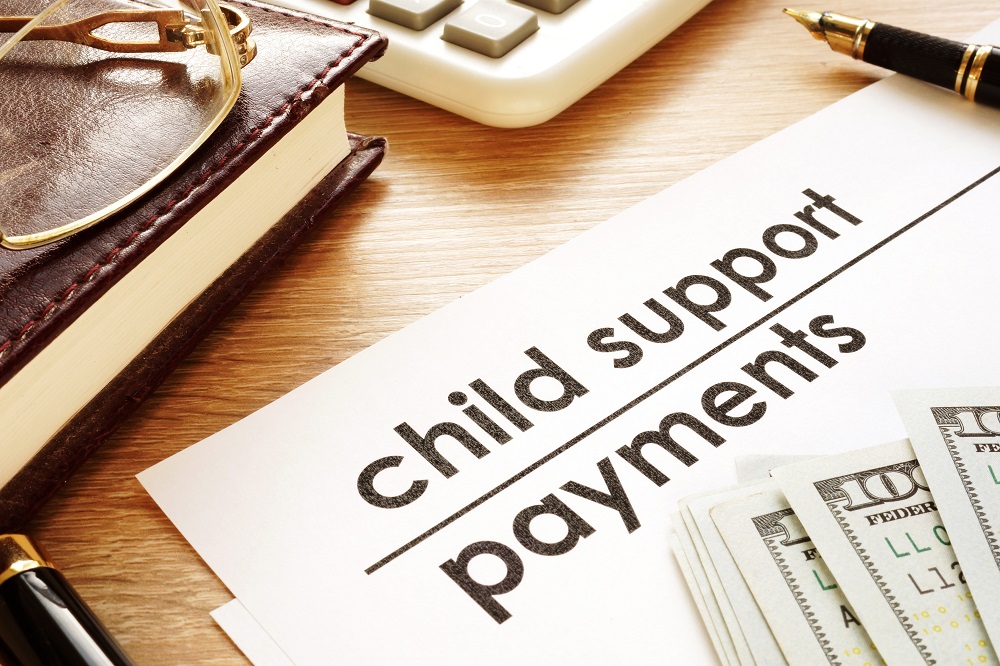Can Child Support Be Taken from a Personal Injury Settlement in Philadelphia?
- June 01, 2022
- Personal Injury

Table of Contents
Toggle
If you get hurt in an accident due to someone else’s negligent actions, you may be legally entitled to recover compensation to cover your medical expenses and other losses due to your injury. This is the basic premise of a personal injury settlement. If you receive compensation and have not paid child support, you may be asking, Can child support be taken from a personal injury settlement in Philadelphia? The short answer is yes.
A lot of parents are not aware that if they receive a personal injury settlement, the court could take some of their compensation to pay any overdue child support they might owe. This could be a real shock for parents who owe a significant amount in child support arrearages.
Understanding How Child Support Arrears Could Impact Personal Injury Settlements

A child support arrearage or arrear is the amount of money a parent is behind in child support payments. Let’s say that Sam and Mandy got divorced, and the court ordered Sam to pay $150 for child support weekly. But Sam was seriously injured in an auto accident through no fault of his own and suddenly finds it difficult to make his child support payments on time.
Sam files a personal injury case against the negligent driver and settles the case for $380,000. Sam’s weekly income hasn’t increased or changed, so modification is not necessary. By this time, Sam has back child support and is behind on payments by $30,000. But, he now has money from the settlement; what happens now? In Pennsylvania, the law requires lawyers to forward verdict or settlement proceeds exceeding $5,000 to the proper child support enforcement authority to pay off child support arrears.
Likewise, the law requires that if the individual disputes the arrear amount, the funds must nevertheless be sent to the enforcement department’s disbursement unit. The department will then keep the money in an escrow account until the dispute regarding the arrear amount has been resolved. All monetary damages or compensation, which are generally defined as any claim for injury or death, are subject to this statute if the award exceeds $5,000.
The State Can Garnish Your Personal Injury Settlement for Child Support
The state has the right to garnish your settlement for child support payments. If you don’t pay the court-ordered child support, the court can force you to pay up. Also, if the custodial parent has previously asked the court for help enforcing the support order, there’s probably a child support lien. In any case, you and your lawyer will be notified if the state will need to take a portion of your personal injury settlement to settle your support arrears.
The liable party’s insurance provider, which is shouldering the claim, will work out the compensation details with your Philadelphia personal injury lawyer. It is also vital to note that even personal injury settlements for another individual that’s deposited into a joint bank account with another individual who has child support arrears might be garnished.
Furthermore, depending on the specific damage awards you have received and the basis of your personal injury claim, the court may or may not treat your settlement as income. For example, if you were awarded or compensated for lost earnings because you were out of work while recovering from your injuries, the court might consider the lost earnings part of your compensation as income. In turn, the court can garnish it for unpaid child support payments.
Basically, similar to how the court treats income, bank accounts, and tax refunds that could be garnished for child support arrears, personal injury settlements are likewise subject to garnishment.
How Child Support Arrears Impact How Much Compensation You Can Receive
After all the parties have agreed to a settlement amount, and you’ve accepted the liable party’s offer, your compensation will be put towards paying your medical expenses and lawyer fees. The rest of the money will then be given to you or used to pay your unpaid child support payments. Whether or not the court will require you to pay all your arrears will significantly depend on the laws of the state where you have unpaid child support.
Some states require parents with unpaid child support to clear all the arrears before the parent receives any money from the settlement. Other states have minimum limits that the parent can receive, and any money that remains after paying off medical expenses and lawyer fees may be used for paying child support. This is why working with an experienced Philadelphia personal injury lawyer is important to figuring out how support payments can affect how much compensation you can potentially get.
Can a Personal Injury Settlement Impact the Amount of Future Child Support?
The garnishment of personal injury settlements for child support apply solely to arrearages. If you are current on child support, then no legal basis exists to garnish your personal injury compensation. However, the award may impact future payment amounts because it increases your taxable income in the year received.
Often, injury victims end up in a financial pickle. Medical bills mount, and lost income bites. Depending on the plaintiff’s financial position, these hardships may lead to child support arrearages. When this occurs, the injured parent must petition the court to modify the child support based on the loss of income.
The settlement, once received, usually clears the child support arrearages and provides enough compensation for outstanding medical bills and lost income. The court then raises the child support according to the increased earnings. However, since personal injury settlements are paid lump sum, courts set the new amount higher than the payor’s regular income supports, requiring another modification the following year.
How Is Child Support Calculated In Pennsylvania?
Pennsylvania law uses the “income share” or “percentage of income” methods for calculating child support.
Also, courts can increase child support arrearages by raising the amount due to special circumstances, commonly childcare costs and medical bills. Under this provision, both parents must contribute to these additional expenses, with the amounts determined by income levels and the child’s financial need. For example, a non-custodial parent may see an increase in child support from $300 to $500, with the additional $200 earmarked for daycare expenses or medical bills related to the child’s illness.
Parents can avoid the prospect of child support arrearages by making their own arrangements out of court. If this approach fails, the Pennsylvania family court hears the case and decides the child support terms based on the income share- or percentage of income method, depending on the case.
Income Share Method

When the income share method is employed, the court refers to a set of economic tables in determining the approximate monthly cost of raising a child. Judges use this figure to calculate the non-custodial parent’s obligation. The costs of raising the child are rarely split equally between the parents. Instead, the parent with the larger income bears the lion’s share of the financial obligation to the child.
For example, the economic tables may indicate the cost of raising one child is $1,000 per month. If the non-custodial parent makes $2,000 per month, and the custodial parent makes $1,000 per month, then the higher-earning non-custodial parent must pay a larger share, in this case, $666 per month, or 66.6% of the $1,000.
Percentage of Income Method
The percentage of income method is far simpler. Rather than considering the costs of child-rearing and the relative disparity in the parents’ incomes, judges order a percentage of the non-custodial parent’s income transferred to the other parent. Using this formulation, judges have the flexibility to vary the percentage based on the circumstances. In addition, when the payor’s income changes, the court can leave the rate the same or adjust it upwards or downwards.
For instance, if the non-custodial parent of one child makes $2,000 per month and the court orders a flat 25%, the payor must remit $500 per month. If a non-custodial parent’s income increases to $3,000, he or she must then pay $750 per month. Either side can request a percentage modification.
Often, the payor asks for a lower proportion after a rise in income because the increased amount goes beyond the child’s needs. However, if child support arrearages are owed, much of the increase in income goes to defray the back balance. On the other hand, the custodial parent could petition for a higher percentage because the current support amount leaves the child deprived of essentials or places an unfair burden on the custodial parent.
Can Child Support Be Taken from a Personal Injury Settlement? Consult with a Philadelphia Personal Injury Lawyer
If you have child support arrears that might affect your personal injury compensation, you should work with an experienced lawyer to find out more about rights. You can reach out to us here at Mattiacci Law, LLC, to arrange a free case review with our skilled Philadelphia personal injury lawyer. Call 215-709-7915 or contact us online for more details.
Related Content: How Are Personal Injury Settlements Paid Out in Philadelphia?

